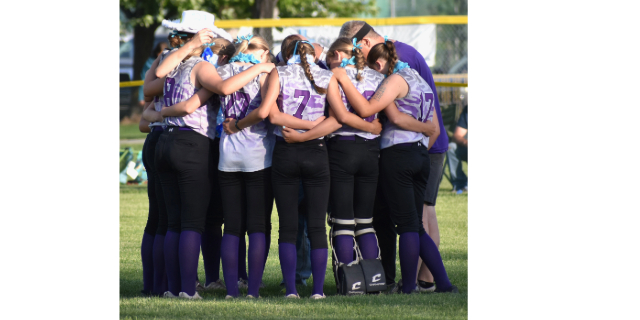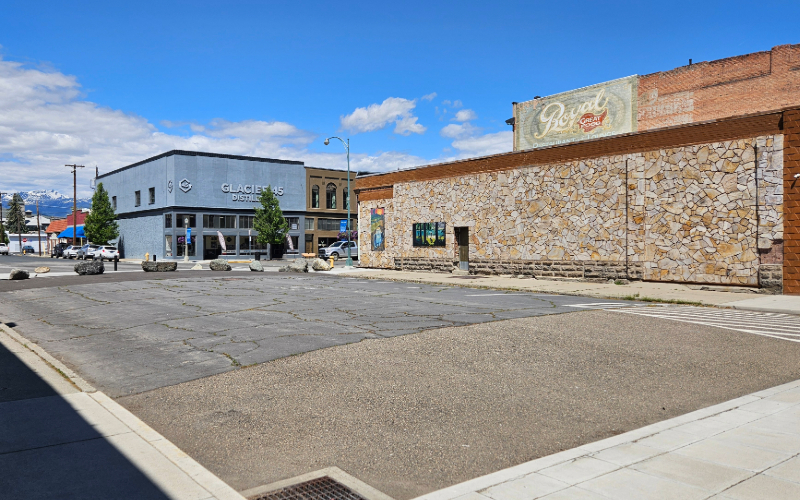From barefoot acupuncturist to peacemaker
Published 4:32 pm Thursday, October 9, 2008

- Enlin Li brings a little art, science, agriculture and culture of China to students at Baker High School Wednesday. (Baker City Herald/S. John Collins)
In her 53 years, the Rev. Enlin Li has been a farmer, a pastor, a teacher – and a barefoot doctor.
It used to be the custom in her native China for farmers in rural
provinces to receive three months of rudimentary medical training and
then be turned loose to practice acupuncture and other disciplines.
Better that than no doctor.
Li and her fellow doctors would make house calls straight from their work in the rice paddies – hence their name.
Most barefoot doctors practiced their acupuncture techniques on a
makeshift cloth package, but Li tried out what she learned on her own
body.
“I learned faster that way,” she told Baker High School students during a presentation Wednesday.
She may have learned quickly, but not as well as she might have liked.
Complaining of stomach pains, her first patient yelped in pain when she
pierced him with the first acupuncture needle she ever used on someone
else.
For good reason: the needle went all the way through the poor man, tacking him to a table.
“I told him, ‘Why are you screaming? You are a man,’ ” Li said. “At least his stomachache was gone.”
Li will visit Oregon and three other states this month as part of the Presbyterian Peacemaking Program. Twelve international representatives have fanned out across the nation to, in the words of the denomination’s Web site, “help us understand the peace and justice concerns of others around the world. This sharing translates into a better understanding of the peace and justice issues in our own communities.”
Li was a high school student during China’s Cultural Revolution in the late 1960s and early 1970s. Teachers were held in suspicion in those days, so students like Li were told by Communist Party officials to teach other students.
She would have liked to have gone on to college, but her father, a pastor, was in prison for his beliefs, and her only career options were to be sent to a rural region of her native Yunnan Province for what Party officials called “re-education” by farmers, or get trained as a barefoot doctor who practiced acupuncture.
“Farmers would bring me their sick pigs,” she said, and she’d stick the porcines behind their ears. Farmers would tell her, “With your magic fingers you can cure my pig.”
Her patients paid 30 cents a year for the healthcare she provided, but she wasn’t compensated for her work.
“I worked 365 days a year without holidays or weekends,” she told the students. “You worked hard without really making ends meet.”
With the end of the Cultural Revolution, Li got her chance to go to college, and then theological seminary – although her father’s imprisonment for his faith made her think long and hard about a career in ministry.
“I didn’t want to suffer as my father had suffered,” she said. “My brother was in seminary, and he told me he would write me a letter every day” until she too enrolled.
She did, then went to work for the nonprofit Amity Foundation, which seeks to promote rural development and provide better healthcare and educational opportunities for China’s rural residents.
About 17 percent of residents in her province have AIDS. Many farmers contracted the disease while donating blood, she said. Some rural residents are so paranoid of also being infected that they won’t eat produce grown by a farmer with the disease.
She married the artist Zhi Ming Wang, who’s 12 years her senior, after meeting him through a matchmaker who told her he was only four years older than she.
“When he showed up (at the matchmaker’s) I was surprised,” she said. “There was this thin, old, ugly man. I thought it must be a mistake.”
Out of courtesy she wrote him a letter and he responded. The couple were married a month later.
“Now I know this considerate, humble, compassionate man is a gift from God,” she said of Wang, considered one of China’s top 100 artists. “His painting is much better than his looking.”
The Beijing Olympics benefited China in at least two ways, she believes: they helped convince officials that the country must work harder on its environment, and they necessitated volunteerism among tens of thousands of ordinary Chinese citizens.
“The volunteer concept is new to Chinese culture,” she said. “People practiced for a year just for that one moment.”
In a question-and-answer session following her presentation, students wondered what she’d learned about the United States during her brief visit.
“China was closed for so many years, and all we heard was how bad your lives were and how rotten your imperialism is,” she said. “People look at my feet and are surprised how big they are. They say, ‘I thought women in China bind their feet.’
Her visit has also had a healing effect, she said.
“I have headaches in China, but since I came here I have no headaches,” she said.





